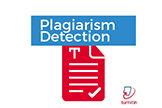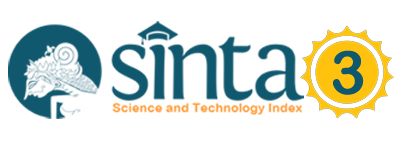- Focus and Scope
- Section Policies
- Peer Review Process
- Publication Frequency
- Open Access Policy
- Archiving
- Focus and Scope
- Privacy
- Peer review process
- Publication frequency
- Open Access policy
- Archiving
- Aims
- Malpractice Statement
- Plagiarism check
Focus and Scope
Wahana Fisika (WaFi) is a physics journal to accommodate research articles from lecturers or researchers of physics studies which include study: Theoretical Physics, Material Physics, Instrumentation Physics, Earth Physics, Astronomy, Biophysics and Modeling Physics Simulation and other pure physics applications.
Section Policies
Articles
Peer Review Process
Blind Review
Publication Frequency
Published twice a year, June and December
Open Access Policy
This journal provides immediate open access to its content on the principle that making research freely available for reading and downloading to the public supports a greater global exchange of knowledge.
Archiving
This journal utilizes the LOCKSS system to create a distributed archiving system among participating libraries and permits those libraries to create permanent archives of the journal for purposes of preservation and restoration. More...
Focus and Scope
- Material physics
- Instrumentation physics
- Geophysics
- Astronomy
- Computational physics
- Biophysics
- Theoritical physics
- another applied physics
Privacy
Journals receive articles either in the form of research results, thought-out results or literature review.
Peer review process
All articles submitted to this journal must follow focus and scope, and author guidelines of this journal. The submitted manuscripts must address scientific merit or novelty appropriate to the focus and scope. All manuscripts must be free from plagiarism contents. All authors are suggested to use plagiarism detection softaware to do the similarity checking.
The research article submitted to this online journal will be peer-reviewed at least 2 (two) or more expert reviewers. The reviewers will give scientific comments on the contents of the manuscript.
Final decision of articles acceptance will be made by Editors according to reviewers comments. Plagiarism detection of articles in this journal is carried out by using Turnitin software.
Publication frequency
Since June 2016, Wahana Fisika was published twice a year in June and December. Every issue consisted more than 6 articles therefore, every volume consisted at least 12 articles.
Open Access policy
Wahana Fisika does not charge any processing or publishing fees for every article published.
This journal provides immediate open access to its content on the principle that making research freely available to the public supports a greater global exchange of knowledge.
All articles published Open Access will be immediately and permanently free for everyone to read and download. We are continuously working with our author communities to select the best choice of license options:
• Creative Commons Attribution-ShareAlike (CC BY-SA)
Archiving
LOCKSS (Lots of Copies Keep Stuff Safe)
Aims
Developing science in the field of pure and applied physics
Malpractice Statement
Publication Ethic and Publication Report of Malpractice
Ethical guidelines for journal publications
The publication of an article in a peer-reviewed journal published by the Language Center, University of Education Indonesia is a process of permanent knowledge enhancement. This is a direct reflection of the quality of the author's work and the institutions that support them. The article reviews support and embody scientific methods. It is therefore important to agree on the expected standards of ethical conduct for all parties involved in the act of publishing: journalists, publishers, journalists, publishers and community-owned or sponsored journals.
Language Center, Universitas Pendidikan Indonesia take their assignment of trust for all stages of serious publication and we recognize our ethical and other responsibilities.
We are committed to ensuring that ads, reprints or other commercial revenue have no impact or influence editorial decisions. In addition, the Editorial Board will assist in communication with other journals and / or publishers where it is useful to editors.
The author's job
Standard reporting
The author of the original research report must present an accurate report of the work performed as well as the discussion of the purpose of the meaning. Underlying data must be accurately represented in the paper. Paper A should contain enough detail and reference to allow others to replicate the work. A fraudulent or intentionally inaccurate report is unethical and unacceptable behavior. Reviews and professional publications of the article should also be accurate and objective, and the editorial 'opinion' work should be clearly identified as such.
Data access and retention
Authors may be required to provide raw data in connection with paper for editorial, and should in any case be prepared to store such data for a reasonable time after publication.
Originality and plagiarism
The authors shall ensure that they have written the original work entirely, and if the author has used the work and / or other words, that this has been correctly quoted or quoted. Plagiarism of many forms, from the 'passing off' of other papers as the author's own paper, to copy or cite a substantial part of another person's paper (without attribution), to claim the results of research done by others. Plagiarism in all its forms is unethical and unethical publishing behavior.
Multiple, exaggerated or concurrent publications
A writer does not have to generally publish a script describing essentially the same research in more than one major journal or publication. Sending the same script to more than one journal at the same time is unethical and unethical publishing behavior. In general, a writer should not submit to be considered in another journal a previously published paper.
Source recognition
Appropriate recognition of the work of others must always be given. The author should cite publications that have been influential in determining the nature of the reported work. Personally-acquired information, such as in conversations, correspondence, or discussions with third parties, should not be used or reported without explicit, written permission from the source. Information obtained in the field of confidential services, such as refereed manuscripts or grant applications, shall not be used without explicit written permission from the author of the work involved in the service.
Paper articles
Authors should be limited to those who have made significant contributions to the conception, design, implementation, or interpretation of reported research. All persons who have made significant contributions should be listed as co-authors. Where there are others who have participated in certain substantive aspects of a research project, they must be recognized or registered as contributors. The appropriate author must ensure that all co-authors have reviewed and approved the final version of the paper and have agreed to the submission for publication.
Hazards and human or animal subjects
If the work involves chemicals, procedures or equipment that have an unusual danger inherent in their use, the author must clearly identify this in the manuscript. If the work involves the use of animals or human subjects, the authors should ensure that the manuscript contains a statement that all procedures are performed in accordance with relevant law and institutional guidelines and that the appropriate institutional committee (s) has approved them. The author must include a statement in the text that informed consent was obtained for experiments with human subjects. The privacy rights of human subjects should always be taken care of.
Disclosure and conflict of interest
All authors must disclose in their text any substantive financial conflicts or other interests that may be interpreted to influence the results or interpretation of their manuscript. All sources of financial support for the project should be disclosed. Examples of potential conflicts of interest to be disclosed include employment, consultancy, share ownership, honorarium, paid expert testimony, patent application / registration, and grants or other funds. Potential conflicts of interest should be disclosed at the earliest possible stage.
Fundamental mistake in published work
When the author finds significant errors or inaccuracies in his / her own published work, it is the duty of the authors to promptly notify the journal or publisher editors and work with the editor to retract or repair the paper. If the editor or publisher learns from a third party that the published work contains significant errors, it is the author's obligation to immediately retract or repair the paper or provide evidence to the correctness editor of the original paper.
Editor's job
Publication Decision
The peer-reviewed journal editor is responsible for deciding which of the articles submitted to the journal should be published, often in collaboration with the relevant community (for community-owned or sponsored journals). The validation of the work and the importance of researchers and readers should always encourage such decisions. The editor may be guided by the policy of the editorial board of the journal and restricted by such legal requirements will take effect on defamation, copyright infringement and plagiarism. Editors may negotiate with other editors or reviews (or community officials) in making this decision.
The game is fair
Editors should evaluate the manuscript for their intellectual content irrespective of race, sex, sexual orientation, religious belief, ethnic origin, citizenship, or political philosophy of the authors.
Confidentiality
The editor and any editorial staff should not disclose any information about the manuscript submitted to anyone other than the appropriate author, reviewers, potential reviewers, other appropriate editorial advisors, and publishers.
Disclosure and conflict of interest
Unpublished material disclosed in a submitted manuscript shall not be used in the research of its own editor without the written consent of the author. Special information or ideas obtained through peer review should be kept confidential and not used for personal gain. The editor must resign (ie have to request a co-editor, associate editor or other member of the editorial board not to review and consider) from considering the script in which they have a conflict of interest due to a competitive, collaborative, or other relationship or connection with one of the authors, companies, or (perhaps) agencies connected to the paper. The editor must require all contributors to disclose relevant competing interests and publicize corrections if competing for interest.
Statement of Ethics of Publication
Statement of Ethical Publications and Malpractice Author
The undersigned
1) Name: ______________________________________
Affiliation: ________________________________________
2) Name: __________________________________________________
Affiliation: ________________________________________
3) Name: ______________________________________
Affiliation: ______________________________________________
4) Name: ______________________________________
Affiliation: _________________________________________
hereby declare that I / we:
1) accepting and complying with the ethics of the publications of Slaughter and the publication of malpractice.
2) a manuscript entitled:
______________________________________________________________________________________________________________________________________________________________________________________
I / we are sent to Physics Ride for edition .................... is my original work / we are free from plagiarism and have never been published before either in print or online and not being sent to / reviewed by other publishers.
3) agrees with the final version of the manuscript sent by the editors of Wahana Fisika as final proof.
Signed: ________________________________________ Date ______________
Signed: ________________________________________ Date ______________
Signed: ________________________________________ Date ______________
Signed: ________________________________________ Date ______________
Plagiarism check
The authors shall ensure that they have written the work entirely original, and if the author has used the work and / or other words, that this has been quoted appropriately. Plagiarism in all its forms constitutes unethical conduct in publication and is unacceptable.
Prior to the review stage, all the manuscripts will be checked whether they are free from the practice of plagiarism using Turnitin software. If there is an indication of plagiarism, then the manuscript will be rejected immediately








